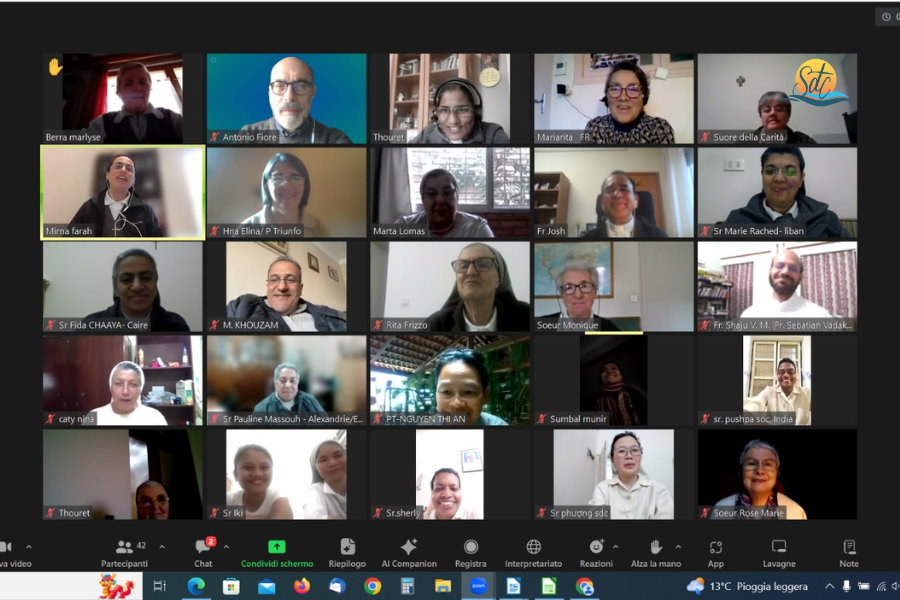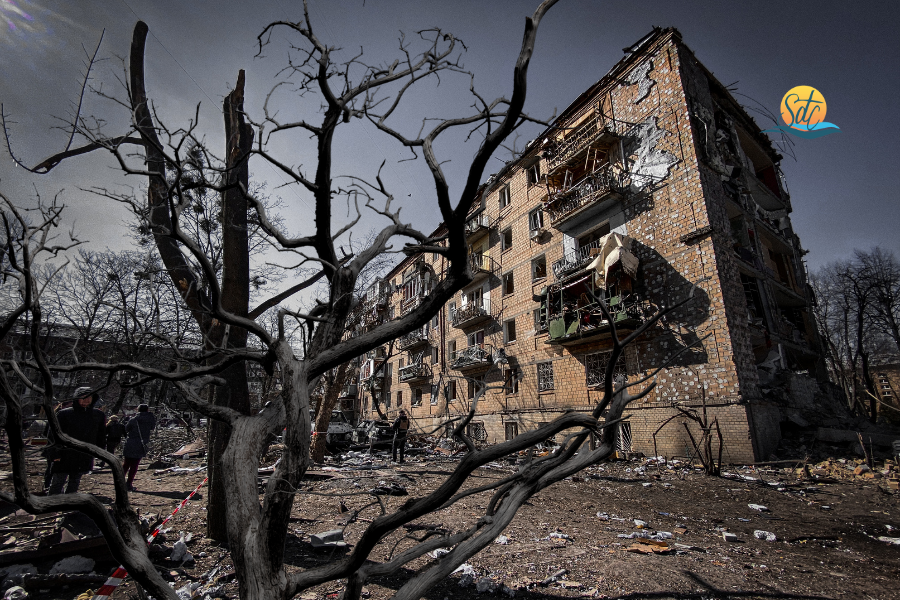For the National Teams of the International Workshop on Integral Ecology: Father Joshtrom Kureethadam, from the Dicastery for Human Development, gave us some more of his time to carry out the theme of the 3rd Formation, on 10 February 2024.

After the opening prayer led by sister Mirta P., the remembrance of the formation course presented so far by sister Elina B., the coordinator of the Central Team, sister Mirna F. welcomed the participants and presented the theme of the day: “The new paradigms of Laudato Si'”, passing the floor to the speaker.
Fr Joshtrom began by recalling that the document of Laudato Si’ is organised around three verbs: see, judge and act. In the previous meeting we had focused more on ‘seeing’ reality, listening to the cry of the earth and the poor, which are the two sides of the same coin: the socio-environmental crisis. And it encouraged us to go a step further, delving into the roots of this crisis.
As stated in Laudato Si’ (chapters 3 and 4) and reaffirmed by Laudato Deum, we must be aware that the origin is undoubtedly in the actions of human beings who, driven by the paradigms of androcentrism (the human being at the centre of creation, just as the planets were once thought to revolve around the earth) and the dominant technocracy (which it is increasingly difficult to do without and even more difficult to use without being dominated by its logic, which is that of power; LS 108) have a mechanistic view of the world, which sees it only as a reservoir of resources to be used without taking into account the needs of others and future generations.
However, Pope Francis reminds us that “human freedom is capable of limiting technology, of orienting it and putting it at the service of another kind of progress, healthier, more humane, more social and more integral” (LS 112), which is why he proposes a new paradigm of life: that of INTEGRAL ECOLOGY.

Understanding that the human being is not at the centre, but is a creature among creatures, a being in relation, where everything is interconnected and interdependent, leads us to take care of the Common Home, which is home to all and for all; it makes us seek a new economy, a new form of government, a new education; it leads us to listen to the cry of the earth and of the poor and to fight for eco-justice; it opens us to a transcendental vision of life that provokes us to change by opting for a style of ‘the simply necessary’.
At the end of the presentation, Antonio Fiore opened and led a brief exchange of questions among which he highlighted how to help people, especially young people, enter into this new understanding of reality that will lead to the changes that are urgently needed in the next 7-10 years.
Father Joshtrom gave us some advice:
- Act synodically, joining with others and learning from others.
- Participate in networking, for example of the Laudato Si’ Movement, using their platform.
- Encourage the sense of contemplation that technology has made us lose (don’t go to sleep without seeing a star).
- Offer meaningful mission experiences where we can connect the consequences of ‘my’ choices with the cry of the poor.
- Believing in the transformative power of education.
Thank you all for your participation and let us move forward with God’s strength.






